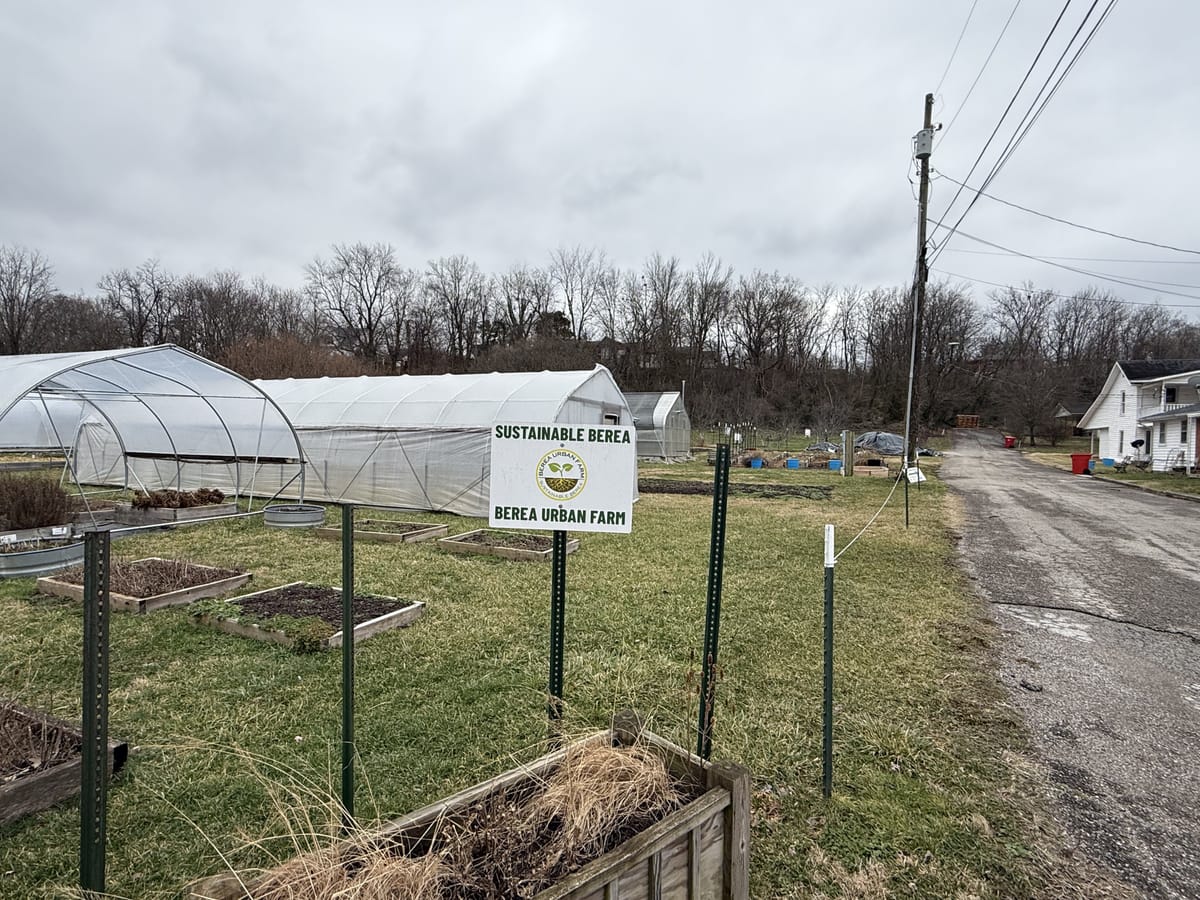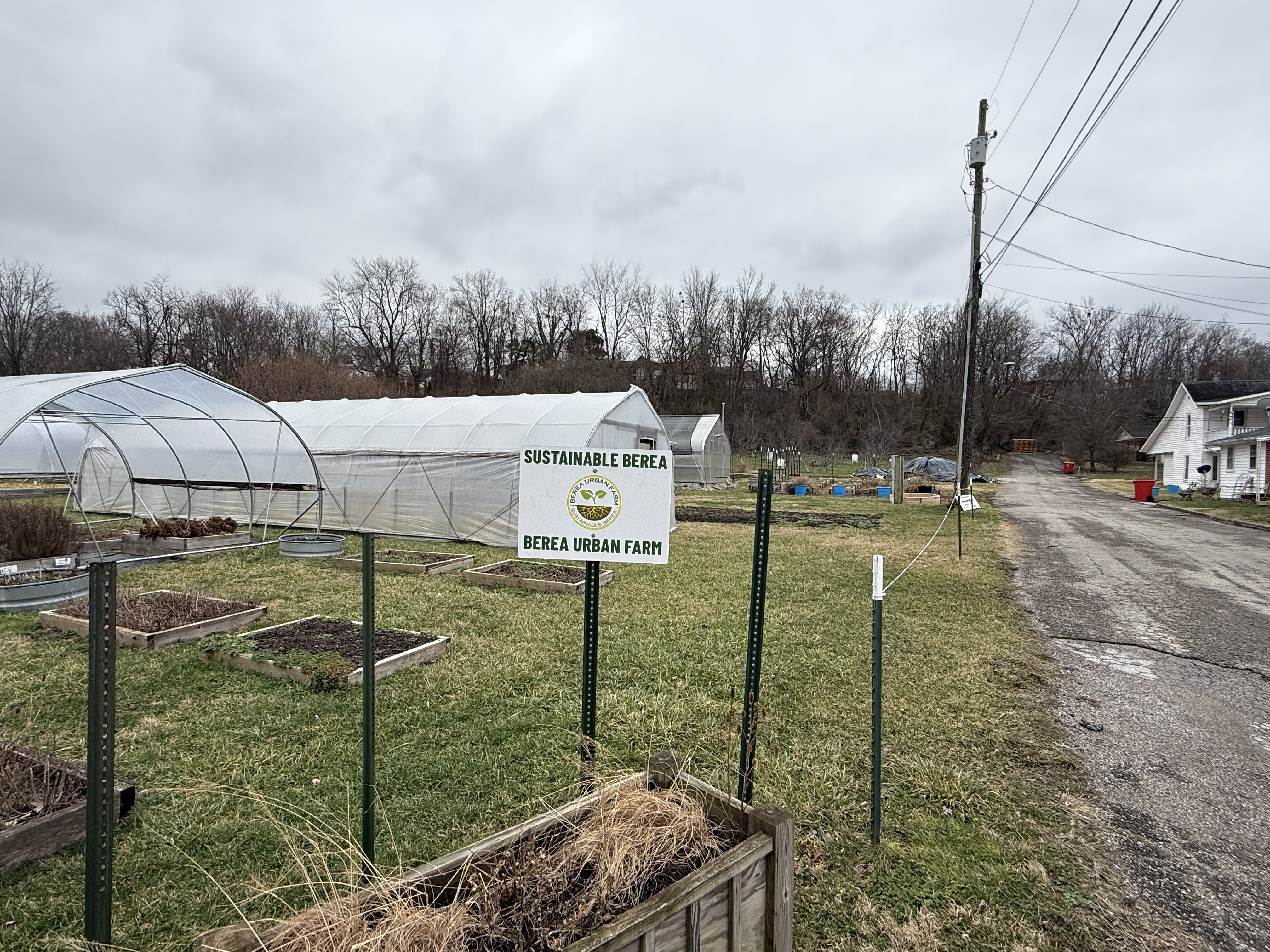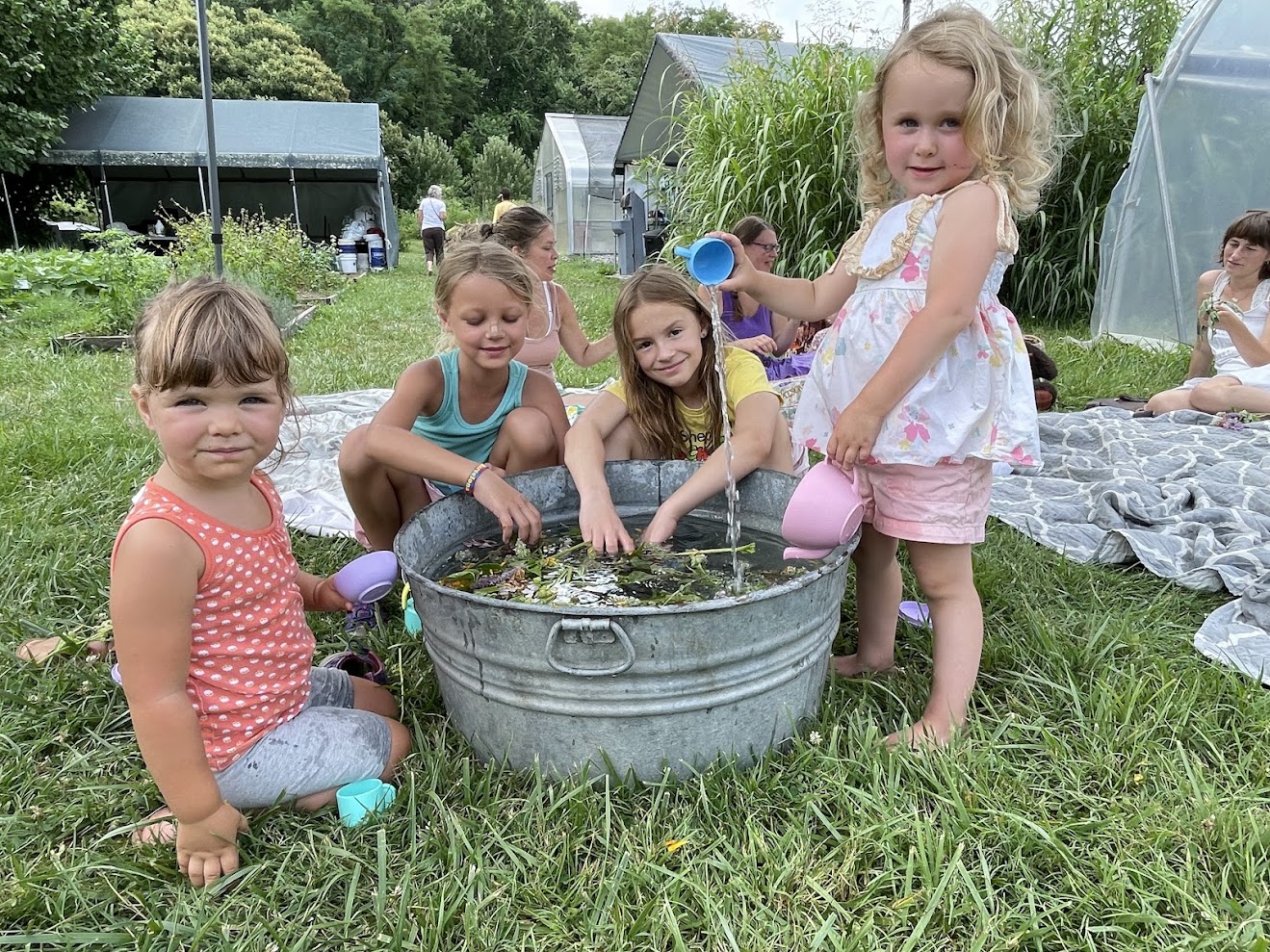Exclusive: Will Berea Urban Farm continue to operate?
Dispute over lease prompts existential crisis for organic garden partially located on City property


BEREA — Missing documents to do with a third of an acre of City property on Adam Street has put the Berea Urban Farm’s existence in jeopardy, according to one of the farm’s cofounders.
“It’s not an exaggeration to say to say that the day we lose access to that property is the day the Berea Urban Farm stops functioning,” Richard Olson told a crowd of supporters at last week’s annual Sustainable Berea dinner auction.
At issue are the terms agreed to by the farm’s operator, Sustainable Berea, for the use of the parcel on the northwest corner of the farm at the intersection of Adam and Grant streets.
In 2013, the City’s tourism commission purchased the third of an acre of land now in dispute and leased it to Sustainable Berea. The lease was for 10 years with an option to renew, beginning in March of 2015.
The problem, said Olson, is that Sustainable Berea cannot prove they have paid the one dollar per every year of the lease’s ten years. Now the City claims the farming operation is in default of its lease and cannot exercise its option to renew. The current lease will terminate at the end of this month.
The City has offered Sustainable Berea a year-to-year, “one dollar” arrangement instead, but the terms favor the City, giving it the option not to renew the farm’s lease at any point, according to Olson. If the City were to exercise its right to terminate, then Sustainable Berea would have 90 days to remove all structures on the property.
Among those structures are a heated greenhouse, a washing and packing station, a potting shed, a shade house, a storage shed, and 60 raised beds.
Olson also told the crowd his organization had attempted on numerous occasions to purchase the property from the City.
City’s response
Mayor Bruce Fraley responded to The Edge’s attempt to confirm Olson’s claims, with a statement prepared by the City’s attorney, James T. Gilbert.
It read, “the Berea City Attorney and the attorney for Sustainable Berea are working through a lease extension, and the City has every intention of continuing the lease of City owned property to Sustainable Berea for the foreseeable future.”
The Edge’s other questions about whether the organization is in default, whether there have been offers from outside parties to purchase the land, and what the City might do with the land should they not enter into a new agreement with the Farm, went unanswered.
However, the statement did address Olson’s claim that Sustainable Berea has offered to purchase the land. “The Berea City Council would need to pass an ordinance declaring the property ‘surplus’ and authorizing a competitive process of soliciting sealed bids to purchase the property,” the statement read.
Farm’s contributions
Sustainable Berea operates the Berea Urban Farm on a total of 1.4 acres of land in the City’s center. It is described on the farm’s website as “an educational market garden” offering shares in its community supported agriculture, workshops on sustainable farming, garden tours of its demonstration orchard, pollinator plantings, and bee hives, among other offerings.
The Berea Urban Farm has also been recognized this month by Catholic Health Initiatives, through St. Joseph’s Hospital in Berea, with a $16,000 grant for its Farmacy program, a free to low-cost nutrition program that provides fresh herbs and produce to area adults with chronic diseases caused or exacerbated by poor diet, Olson told the crowd.
Olson claimed these successes have been made possible through its partnership with the City.
“The City’s contribution was part of a partnership with Sustainable Berea to form an entity to help their goals to increase tourists coming to Old Town,” Olson told the crowd assembled for the dinner. “Since this land was their contribution, they weren’t going to charge us anything. It was symbolic to just charge us a dollar a year.”
For its investment in the farm, Olson told The Edge in a phone interview that the City has gained healthier citizens, a sense of community, and greater food security. Additionally, the land’s purchase price of $40,000 has been returned to the City with at least one million dollars in economic contributions from the farm to the local economy over the past decade, he said.

Steve Connelly, a retired attorney who was Berea’s mayor at the time of the deal between Sustainable Berea and the City, confirmed to The Edge in a phone interview that the deal with Sustainable Berea was intended to help boost tourism.
“The Berea Urban Farm has been a major contributor to so much positive development in the City,” Connelly said. “It’s an activity I think the City should support, and benefit from.”
To that end, Olson told his supporters that the dollar-a-year deal isn’t the issue, but that what the City gets for that dollar is.
“We had 35 events last year, and we’ll have 40 this year. We had more than a thousand visitors last year, and that includes Bereans as well as out-of-towners. That is what they get for this lease,” Olson said.
The Edge will have more updates on this developing story.
The Edge is a reader-supported publication reporting the news you care about in Berea. You can be a part of the effort by becoming a member of the Edge Community with a paid subscription.
This story was updated at 12:19 PM on February 14, 2025, to reflect that it was Sustainable Berea that entered into the deal with the City. Previously, it was reported as the Olsons who’d entered the deal. It was also updated on February 27, at 2 PM, to reflect that there are 60, not six, raised beds on the portion of land in question.



